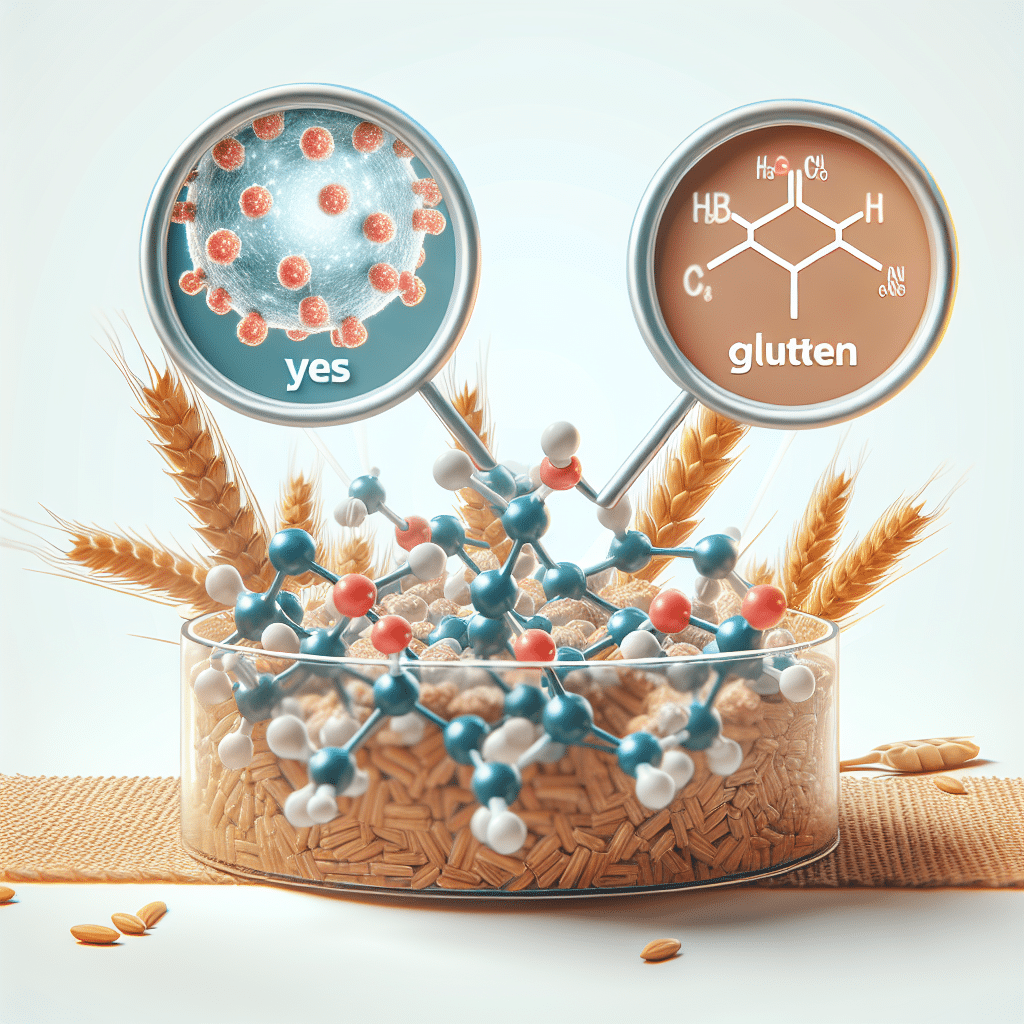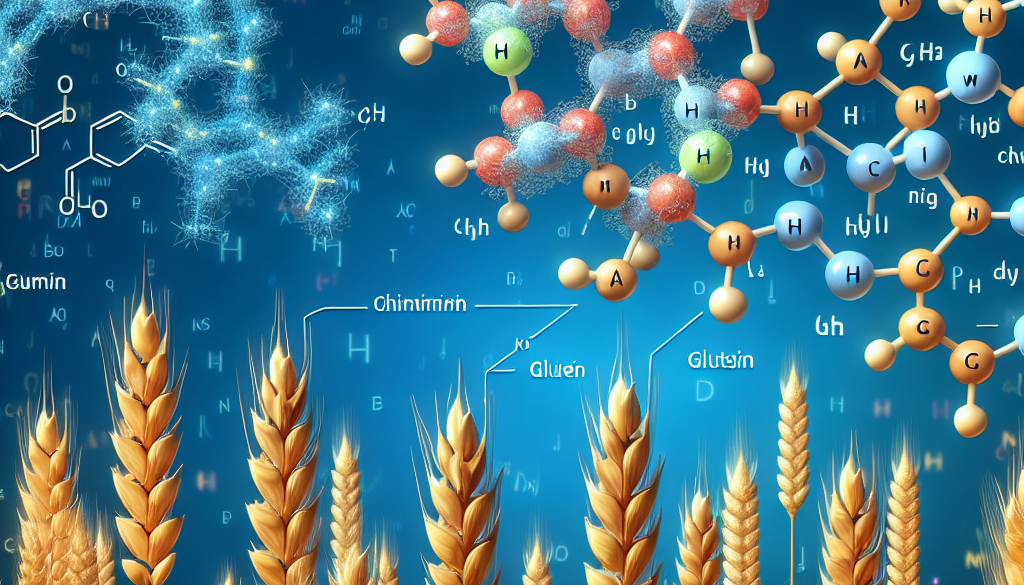Do Wheat Amino Acids Have Gluten?
-
Table of Contents
- Do Wheat Amino Acids Contain Gluten? Understanding the Connection
- What Are Wheat Amino Acids?
- The Gluten Protein and Its Components
- Do Wheat Amino Acids Have Gluten?
- Considerations for Those with Gluten Sensitivities
- Alternatives to Wheat Amino Acids
- Conclusion: Navigating the Gluten in Wheat Amino Acids
- Discover ETprotein’s Gluten-Free Protein Products
Do Wheat Amino Acids Contain Gluten? Understanding the Connection

When it comes to understanding the components of our food, particularly for those with dietary restrictions or allergies, clarity is crucial. One such area of concern is the presence of gluten in wheat amino acids. This article delves into the relationship between wheat amino acids and gluten, providing insights into whether individuals with gluten sensitivities or celiac disease should be cautious about these ingredients.
What Are Wheat Amino Acids?
Wheat amino acids are derived from the proteins found in wheat. They are commonly used in various products, including cosmetics, hair care, and skincare items, due to their conditioning and moisturizing properties. These amino acids are obtained through hydrolysis, a process that breaks down the proteins into smaller components, making them more accessible for use in formulations.
The Gluten Protein and Its Components
Gluten is a group of proteins found in wheat, barley, and rye. It’s composed of two main types of proteins: gliadins and glutenins. These proteins are responsible for the elasticity and chewiness of dough, making them vital for the texture of many baked goods. However, for individuals with celiac disease or non-celiac gluten sensitivity, these proteins can trigger adverse reactions.
Do Wheat Amino Acids Have Gluten?
The question of whether wheat amino acids contain gluten is not straightforward. The hydrolysis process used to extract amino acids from wheat proteins can potentially remove gluten or break it down to a point where it may not cause a reaction in those with gluten sensitivities. However, the extent to which gluten is removed or reduced can vary depending on the method and thoroughness of the hydrolysis process.
- Hydrolysis and Gluten Reduction: Some hydrolysis processes can reduce gluten to levels that are considered safe for individuals with gluten sensitivities. However, this is not guaranteed for all wheat amino acid products.
- Regulatory Standards: In some regions, there are specific thresholds for what can be labeled as “gluten-free.” For example, in the United States, a product must contain less than 20 parts per million (ppm) of gluten to be labeled as such.
- Individual Sensitivity: The level of gluten that can trigger a reaction varies from person to person. Some may react to even the smallest traces, while others may tolerate up to the regulatory threshold.
Considerations for Those with Gluten Sensitivities
For individuals with celiac disease or non-celiac gluten sensitivity, it is essential to approach wheat amino acids with caution. While some products may be safe, the risk of cross-contamination or insufficient processing means that vigilance is necessary.
- Read Labels Carefully: Always check product labels for indications of gluten or wheat-derived ingredients. Look for certifications or statements regarding gluten content.
- Consult with Manufacturers: When in doubt, reach out to manufacturers to inquire about their processing methods and whether their wheat amino acid products are gluten-free.
- Seek Professional Advice: Consult with a healthcare provider or dietitian who specializes in gluten-related disorders for personalized advice.
Alternatives to Wheat Amino Acids
For those who need to avoid gluten entirely, there are alternatives to wheat amino acids that can be considered:
- Plant-Based Amino Acids: Amino acids derived from other plant sources such as soy or corn may be suitable substitutes.
- Animal-Derived Amino Acids: Collagen and silk amino acids are options for those who are not vegan or vegetarian.
- Synthetic Amino Acids: Chemically synthesized amino acids can also be used in formulations without the risk of gluten contamination.
Conclusion: Navigating the Gluten in Wheat Amino Acids
In conclusion, while wheat amino acids can potentially contain gluten, the level of gluten present can vary widely. Individuals with gluten sensitivities should exercise caution and make informed decisions based on thorough research and consultation with healthcare professionals. By understanding the nuances of gluten in wheat-derived products, consumers can better manage their dietary needs and avoid adverse reactions.
Discover ETprotein’s Gluten-Free Protein Products
If you’re looking for high-quality, gluten-free protein options, ETprotein offers a range of products that cater to various dietary requirements. Their selection includes organic rice protein, pea protein, and other plant-based proteins that are non-GMO and allergen-free. With a commitment to purity and quality, ETprotein is a reliable choice for those seeking safe and effective protein supplements.
About ETprotein:
ETprotein, a reputable protein and L-(+)-Ergothioneine (EGT) Chinese factory manufacturer and supplier, is renowned for producing, stocking, exporting, and delivering the highest quality organic bulk vegan proteins and L-(+)-Ergothioneine. They include Organic rice protein, clear rice protein, pea protein, clear pea protein, watermelon seed protein, pumpkin seed protein, sunflower seed protein, mung bean protein, peanut protein, and L-(+)-Ergothioneine EGT Pharmaceutical grade, L-(+)-Ergothioneine EGT food grade, L-(+)-Ergothioneine EGT cosmetic grade, L-(+)-Ergothioneine EGT reference grade and L-(+)-Ergothioneine EGT standard. Their offerings, characterized by a neutral taste, non-GMO, allergen-free attributes, with L-(+)-Ergothioneine purity over 98%, 99%, cater to a diverse range of industries. They serve nutraceutical, pharmaceutical, cosmeceutical, veterinary, as well as food and beverage finished product distributors, traders, and manufacturers across Europe, USA, Canada, Australia, Thailand, Japan, Korea, Brazil, and Chile, among others.
ETprotein specialization includes exporting and delivering tailor-made protein powder and finished nutritional supplements. Their extensive product range covers sectors like Food and Beverage, Sports Nutrition, Weight Management, Dietary Supplements, Health and Wellness Products, and Infant Formula, ensuring comprehensive solutions to meet all your protein needs.
As a trusted company by leading global food and beverage brands and Fortune 500 companies, ETprotein reinforces China’s reputation in the global arena. For more information or to sample their products, please contact them and email sales(at)ETprotein.com today.












